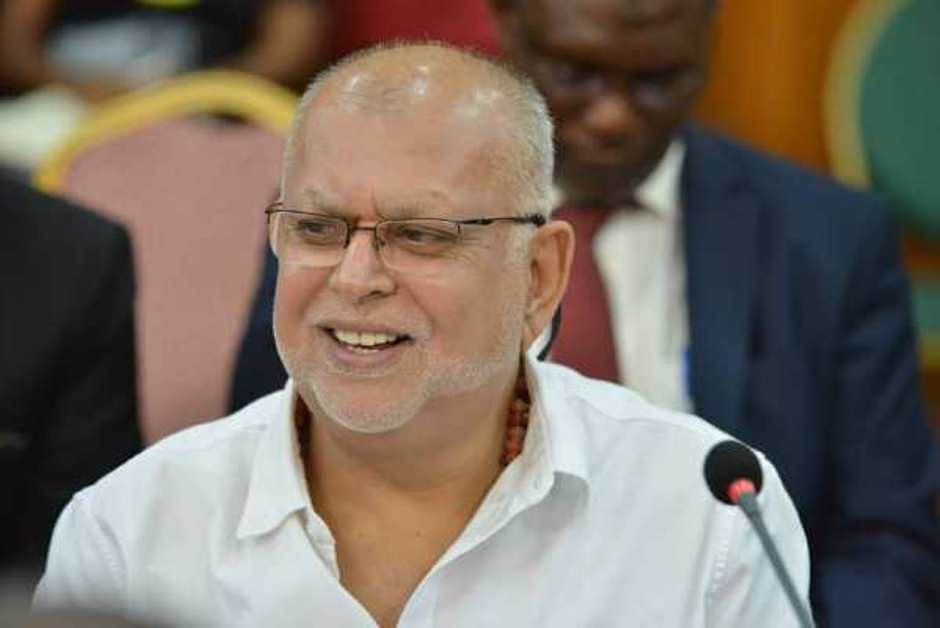dfcu and UCI Executives during the ground breaking Ceremony today
dfcu Bank has extended support to the Uganda Cancer Institute with the construction of a 100-seater shelter to provide the outpatients with a secure and decent waiting area as they access health services at the Mulago institute. The shelter valued at close to UGX 80million is expected to be ready for use in four (4) weeks.
The Uganda Cancer Institute was established in 1967 and its mission is to provide state-of-the-art cancer care services while advancing knowledge through research and training of healthcare professionals in cancer care. One of the major challenges faced by UCI is the high patient load as a result of increasing cancer awareness and incidence in the country. Because cancer care in Uganda has not been decentralized; the UCI is the only facility in the country that offers cancer care services, thus contributing to the high patient numbers at the institute.
With 70% outpatient cases, on average, there are 60 patients daily at the facility – most of them with at least one caretaker. Despite the high numbers, the patients who sometimes need to visit the facility for between one to three months have to take shelter under tree shades or any open space they can find.
“Today, we gather here for this ground-breaking event marking the start of construction of the patient shade that will provide shelter to out-patients who are currently littered around the campus,” said Dr. Jackson Orem the Executive Director.
“I thank you dfcu for showing interest in the welfare of our patients and choosing to partner with the Uganda Cancer Institute,” he added.
A report released by Annals of Global Health estimates that in 2018, 18million new cases were registered and 9.6million deaths globally. By 2030, it is projected that there will be approximately 26 million new cancer cases and 17 million cancer deaths per year. Approximately 50% of all new cancer cases and 70% of all deaths due to cancer worldwide occur in low- and middle-income countries and the cancer burden in Africa is estimated to double by 2030.
As at 2020, World Health Organization (WHO) Globocan report for Uganda indicates that the number of new cases is at 14,529 in males and 19,479 in female. The risk of developing cancer before the age of 75 is 15.8% and 16.0% respectively in both sexes. There were 34,008 new cases of cancer with 22,992 deaths with the number of prevalent cases over 5 years standing at 62,548.
Given the overwhelming numbers, this has put a strain on the available resources at the Institute thereby placing a burden on all stakeholders to act to reign on the situation.
Speaking during the ground-breaking event, dfcu Bank’s Chief Executive Officer Mathias Katamba said: “The impetus is on us all to make our communities better in whatever capacity we can. As a Bank, our ethos is to put our community first in all we do. Through the Corporate Social Investment arm of the Bank, we aim to make a lasting impact in the communities in which we exist. In the case of the Cancer institute, we hope that through our efforts, thousands will benefit but more importantly that others will consider what they can do to support the Institute given the need.”
The shelter that we are breaking ground for today may not lessen the burden and pain of suffering from or having a cancer patient, but it will make it possible for patients and their caregivers to have a decent and safe place to rest as they secure treatment. We also intend to refurbish the play area of the children’s cancer ward to spread some cheer during this hard period in their lives,” Katamba added.

According to the Uganda Cancer Institute, the top seven cancers in Uganda include Cervix Uteri, Kaposi sarcoma, breast, prostate and Non-Hodgkin Lymphoma. Although cancer is a serious health problem leading to suffering and death it can be prevented and controlled if detected early.





